BI SEARCH AND TEXT ANALYTICS - The Data Warehousing Institute
BI SEARCH AND TEXT ANALYTICS - The Data Warehousing Institute
BI SEARCH AND TEXT ANALYTICS - The Data Warehousing Institute
Create successful ePaper yourself
Turn your PDF publications into a flip-book with our unique Google optimized e-Paper software.
Vendor Products for <strong>BI</strong> Search and Text AnalyticsIBMIBM’s software products are known for their support of federation, so it’s no surprise that federatedsearch is part of IBM’s enterprise search platform, WebSphere Information Integration OmniFind.Furthermore, OmniFind supports Unstructured Information Management Architecture (UIMA),an IBM-sponsored open standard for indexing enterprise data—whether structured, unstructured,or semi-structured—regardless of data’s origins, storage, or model. Between federation andUIMA, OmniFind can index and federate just about anything, and it’s known for high scalability.OmniFind supports UIMA-based text analytics, and it also integrates with pure-play text analyticproducts from Attensity and Clearforest. <strong>The</strong> list of vendors supporting OmniFind and UIMAincludes Attensity, Clearforest, Cognos, Endeca, Inxight, SAS, and SPSS.Federation is becominga norm for enterprisesearch architecture.Endeca<strong>The</strong> Information Access Platform from Endeca is a search engine that can analyze its search results.It applies a kind of text analytics or text mining to identify entities and concepts in an index orresult set, then cross references these to describe relationships among them. This imposes a structureon the output, so that the end user gains analytic insight, not just a list of documents, which in turnhelps the end user locate information of the greatest relevance. Endeca is known for its stunninglypleasant user experience, multidimensional search parameters, and high relevance of search results.But achieving these benefits demands a fair amount of development time and cost.Fast Search & Transfer (FAST)Adaptive Information Warehouse (AIW), a family of search-based <strong>BI</strong> products from FAST, fitsbetween the <strong>BI</strong> platform and its data sources, ranging from traditional data warehouses to bodiesof unstructured documents. This way, <strong>BI</strong> search stays focused on <strong>BI</strong> content, and <strong>BI</strong> content isenriched by text-based information. AIW can crawl and index databases and data warehouses, andits text analytics can feed both databases and search indices. AIW even has a data cleansing tool.Hence, from the <strong>BI</strong> platform, searches, ad hoc queries, and reports have access to a broad, friendly,clean, and high-performance index that represents the full data continuum. As with Endeca, gettingto this desirable goal takes development effort, but not as much as a traditional data warehouse ordata integration project.<strong>Data</strong>base VendorsAll modern RDBMSs have some kind of search indexing built in, and sometimes related featuresfor text mining, text analytics, data mining, text management, and XML management. Most ofthese features in most RDBMSs require that unstructured and semi-structured data being indexedor mined reside in the RDBMS alongside structured data. As exceptions, IBM DB2 8 and Oracle<strong>Data</strong> Server 10g are known for operating on data outside the RDBMS through federation. RDBMSbasedsearch and text analytics functions are rarely best-of-breed, but the robust maturity of anRDBMS yields other benefits, like a familiar platform, a single store for all data, and scalable datastorage and processing speed.RDBMS-based searchhas advantages, likefamiliarity, scalability,and indexing options.www.tdwi.org 29


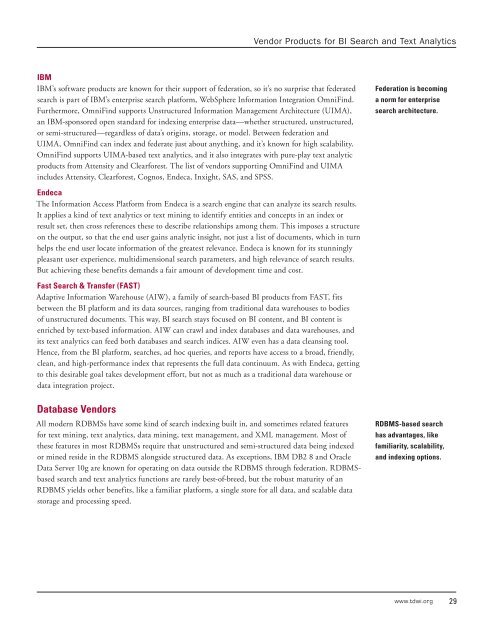
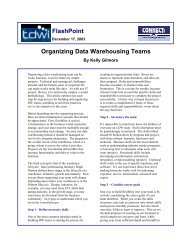
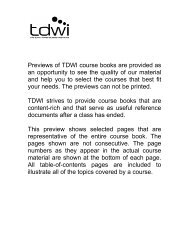
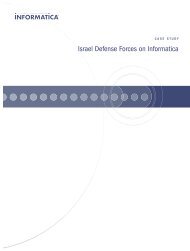
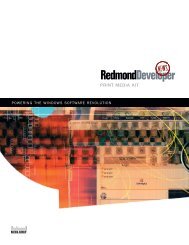
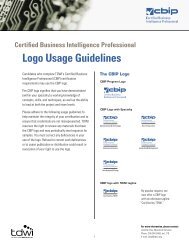
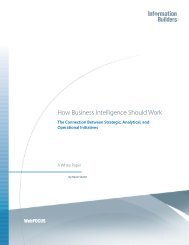


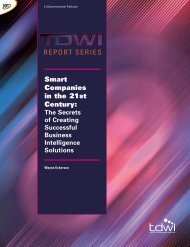
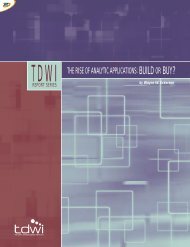

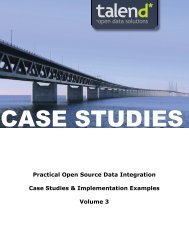
![Ink Jet Formulation- The Art of Color Chemistry 2005 [Read-Only]](https://img.yumpu.com/42062450/1/190x143/ink-jet-formulation-the-art-of-color-chemistry-2005-read-only.jpg?quality=85)
